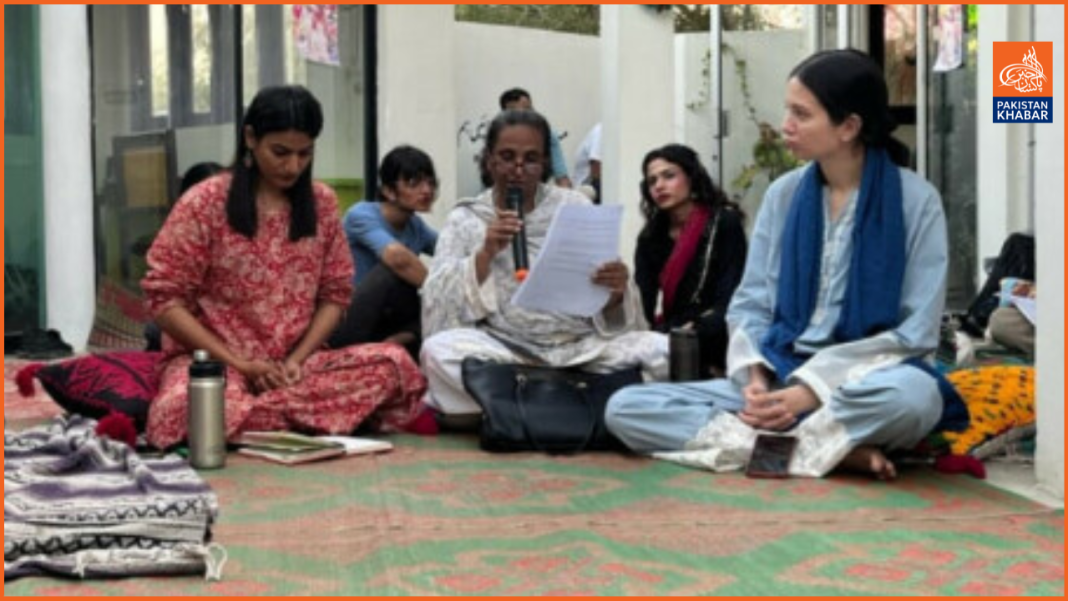Baithak in Karachi Spotlights Women’s Role in Protesting Controversial Canal Project
In a powerful gathering held at Karachi’s Kitab Ghar on Thursday, civil society groups, activists, and community members came together for a baithak (traditional sitting) hosted by Aurat March and the Women Democratic Front. The session focused on the deepening concerns over the proposed Cholistan canals project and its potential impact on Sindh — especially on the lives of women — calling it nothing short of “a crisis of existence.”
The canals, part of the Green Pakistan Initiative, are intended to irrigate the Cholistan desert. However, the project has sparked widespread resistance across Sindh, with demonstrators blocking roads and staging sit-ins. Many fear the canals will siphon away Sindh’s rightful share of water, worsening an already critical water shortage.
At the heart of the discussion was the intersection of water, land, and gender politics. Speakers highlighted how women in Sindh, already burdened with both domestic and agricultural responsibilities, would face the brunt of the crisis. Muneeba Hafeez, Finance Secretary of the Women Democratic Front, opened the session with a moving poem mourning the exploitation of the Indus River — a lifeline for the people of Sindh — likening its slow demise to the tragedy of Karbala.
“Sindhu jo pait pharyo wayo… Sindhu tay top charyo wayo” (“The belly of the Indus has been ripped open… the cannon has been turned on the Indus”), she recited.
Hafeez and fellow speaker Mariam Gopang, a long-time activist with Sindhyani Tehreek, emphasized that the crisis isn’t just environmental — it’s deeply social. They spoke about how seawater intrusion has already displaced communities in Thatta and Sajawal, forcing men to migrate in search of work while women and children are left behind to suffer the consequences.
“Women walk miles every day to fetch water, care for their households, and work the fields — yet their voices are rarely heard,” said Hafeez, warning that the canal project would deepen the already existing inequalities.
Gopang underscored that for many fisherwomen living around Manchar and Keenjhar lakes, the Indus River is more than water — it’s their home, culture, and identity. “Taking the Indus from the women of Sindh is like erasing their entire world,” she said.
She also reflected on her own journey of resistance, recalling how she had joined protests against the Kalabagh Dam decades ago, carrying her infant daughter. Today, her daughter is on the frontlines of this struggle, once again with a baby in tow.
Speakers also touched upon how economic crises brought on by water scarcity often hit girls’ education first, and how urban populations remain largely disconnected from the hardships of rural communities. Gopang urged solidarity across political lines, saying, “We must raise our voices, block roads, and protest wherever we can.”
An Aurat March organiser stressed the need to center women’s voices not just in feminist spaces, but also within wider political movements. “A real feminist movement must stand with all people resisting oppression,” she said.
Following days of mounting pressure, Prime Minister Shehbaz Sharif announced that the controversial project would be paused. However, the Save Indus River Movement — an alliance of political, religious, and civil society groups — dismissed the move, calling it a betrayal of Sindh and vowing to continue protests.



